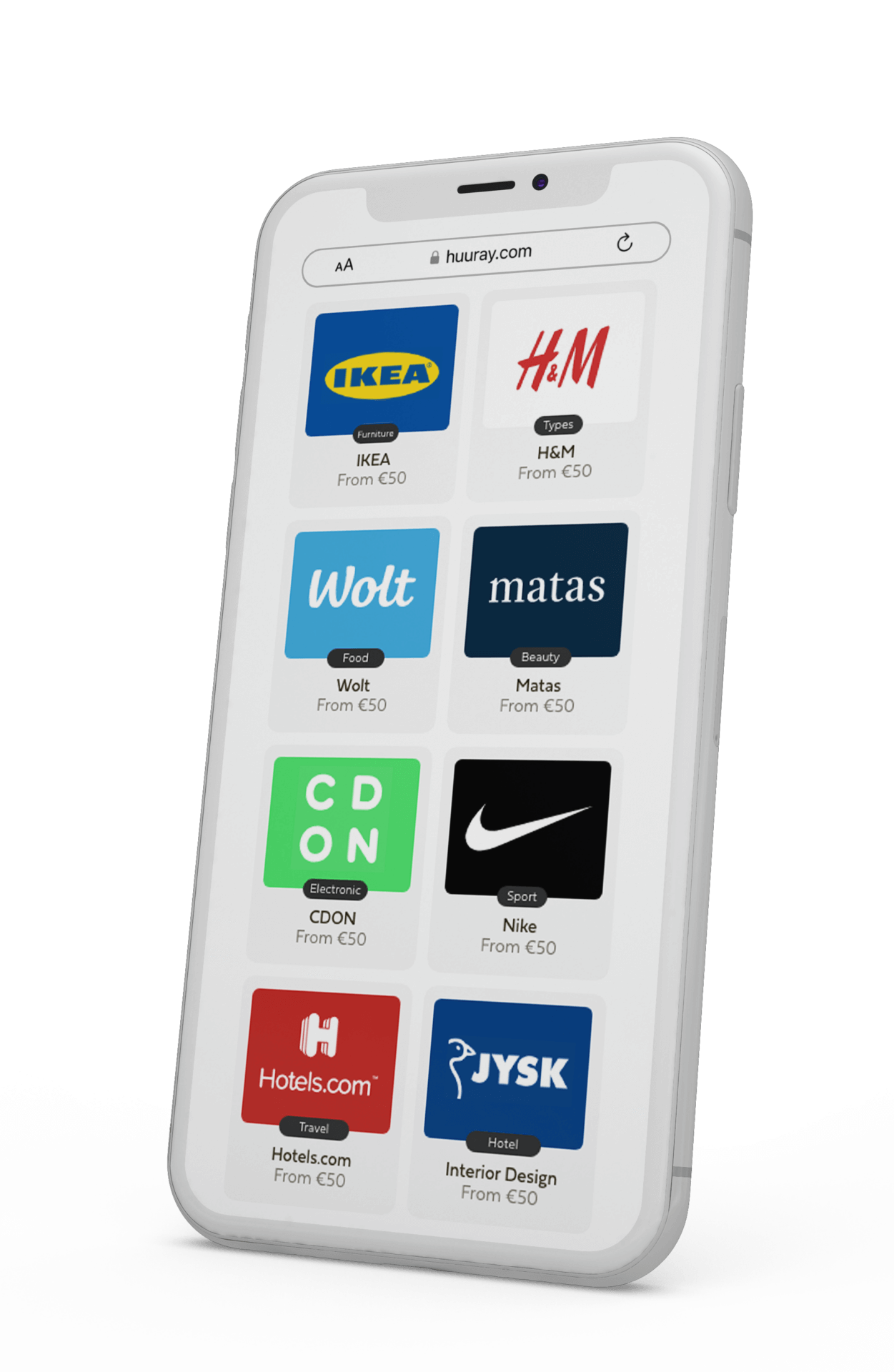Discover the Top 25 Wellness Companies for a Healthy Work-Life Balance


by Signe Hegart
November 17, 2023
In our fast-paced world, maintaining a healthy work-life balance is a challenge. Long hours and stress can impact your well-being. That’s why it’s crucial to prioritize companies that value your health. Here’s a list of the top 25 wellness companies dedicated to promoting work-life balance. These organizations understand the modern challenges and actively support their employees’ physical and mental health. What sets them apart is their use of employee incentives. From financial rewards to gift cards and recognition programs, these incentives motivate positive changes. By prioritizing well-being, these companies create environments where individuals thrive both professionally and personally. Consider joining organizations that invest in your health for a balanced and fulfilling work-life equation.
Jump to section
What are Wellness Companies?
Wellness companies are organizations that prioritize the well-being of their employees and provide various programs, initiatives, and benefits to support their physical and mental health. These companies understand the importance of maintaining a healthy work-life balance and take proactive steps to ensure their employees are able to thrive in both their personal and professional lives. By investing in employee wellness, these companies recognize that a healthy workforce leads to increased productivity, engagement, and overall success.
Why are Wellness Companies important? ✅
Wellness companies are important because they recognize that a healthy work-life balance is crucial for the well-being and success of their employees. These companies understand that when employees are physically and mentally healthy, they are more engaged, productive, and satisfied in their work. By prioritizing employee wellness, these companies create a positive and supportive work environment that fosters personal growth and professional success. Wellness companies play a crucial role in promoting and maintaining the health and well-being of individuals, particularly in the context of workplaces. Here are several reasons why wellness companies are important:
- Improved Employee Health: Wellness companies contribute to the improvement of employees’ physical and mental health. By offering programs and services that address various aspects of well-being, these companies help individuals adopt healthier lifestyles, leading to reduced risks of chronic diseases and improved overall health.
- Increased Productivity: Healthy employees are often more productive. Wellness programs can reduce absenteeism and presenteeism (employees being present at work but not fully productive due to health issues), ultimately enhancing workplace productivity.
- Enhanced Employee Engagement: Wellness initiatives create a positive and supportive workplace culture. When employees feel that their well-being is valued, they are more likely to be engaged, motivated, and committed to their work.
- Cost Savings for Employers: Proactive wellness programs can lead to significant cost savings for employers. By preventing health issues, companies may experience reduced healthcare costs, fewer sick days, and lower insurance premiums.
- Stress Reduction: Wellness companies often provide resources and tools to help employees manage stress. Stress reduction can contribute to a healthier work environment, improved mental well-being, and better coping mechanisms for challenges both inside and outside the workplace.
- Enhanced Recruitment and Retention: Companies that prioritize employee well-being are often more attractive to potential hires. Wellness programs can be a valuable part of an organization’s benefits package, contributing to both recruitment efforts and employee retention.
Read also: How To Motivate Employees and Boost Productivity with Incentives
Employee incentives in Wellness Companies
Employee incentives are powerful tools used by wellness companies to motivate and encourage individuals to participate actively in well-being programs. These incentives are designed to make the journey towards a healthier lifestyle more engaging and rewarding. Here’s how wellness companies leverage employee incentives:
Financial Rewards ????
Cash Bonuses: Employees may receive cash rewards or bonuses for achieving specific health goals, such as weight loss, smoking cessation, or reaching fitness milestones.
Insurance Premium Reductions: Wellness companies often collaborate with insurance providers to offer premium reductions or discounts for employees who actively participate in well-being programs.
Gift Cards and Merchandise ????
Gift Cards: Employees may earn gift cards for retailers, restaurants, or online platforms as incentives for completing wellness challenges or meeting health targets.
Branded Merchandise: Companies may offer branded merchandise, such as apparel, water bottles, or fitness gear, as rewards for participation and achievements.

Send yourself an employee incentive
Paid Time Off (PTO) ????
Wellness Days: Some companies provide additional paid time off specifically designated as “wellness days” for employees who consistently engage in well-being activities.
Flexible Work Hours: Offering flexibility in work hours or telecommuting options can serve as an incentive for employees participating in wellness programs.
Recognition and Awards ????
Public Recognition: Acknowledging employees’ well-being achievements publicly within the organization fosters a positive culture and motivates others.
Employee of the Month Awards: Establishing awards for employees who consistently prioritize and excel in their well-being efforts can be a powerful motivator.
Fitness Devices and Wearables ????️
Subsidized or Free Devices: Offering employees the opportunity to purchase fitness trackers or wearables at a reduced cost or providing them for free can encourage participation in wellness initiatives.
Integration with Incentive Programs: Wearable data can be integrated into incentive programs, rewarding employees for achieving daily step goals or meeting other health metrics.
Read also: 23 Employee Wellness Programs Worth Considering
25 Wellness Companies for a Healthy Work-Life Balance
1. Headspace
Headspace is a globally recognized platform that specializes in meditation and mindfulness. Founded with the mission to improve the health and happiness of the world, Headspace offers a variety of guided meditation sessions designed to alleviate stress, enhance focus, and promote overall well-being. The platform caters to individuals as well as organizations, providing accessible and practical tools for integrating mindfulness into daily life.
Key Features:
- Diverse meditation sessions for different purposes, such as stress reduction, improved sleep, and increased focus.
- Mindfulness exercises that can be easily incorporated into daily routines.
- Specialized content for workplaces to enhance employee mental health and productivity.
- An app-based platform that makes meditation accessible anytime, anywhere.
2. Calm
Calm is a leading app-based platform that focuses on mental well-being through meditation and sleep aid services. It aims to provide individuals with the tools to manage stress, anxiety, and sleep-related issues. Calm offers a wide range of guided meditations, calming music, and sleep stories narrated by soothing voices, creating an immersive experience for users seeking relaxation and stress management.
Key Features:
- Guided meditations catering to various needs, including anxiety reduction, focus improvement, and emotional resilience.
- Sleep aid features, including bedtime stories and calming sounds, to enhance the quality of sleep.
- Daily Calm, a featured meditation for each day, promoting consistency in mindfulness practices.
- Breathing exercises and stretching routines for additional relaxation.
3. Virgin Pulse
Virgin Pulse is a well-being platform designed to enhance employee health and engagement. The platform takes a holistic approach, offering programs that address physical activity, nutrition, and mental health. Virgin Pulse aims to create a positive workplace culture by encouraging healthy habits and providing resources that contribute to a more balanced and fulfilled life for employees.
Key Features:
- Physical activity challenges and rewards to promote a more active lifestyle.
- Nutrition programs and resources to encourage healthier eating habits.
- Mental health initiatives, including stress reduction and resilience-building activities.
- Personalized well-being plans that consider individual health goals and preferences.
4. Wellable
Wellable specializes in customizable corporate wellness programs, catering to the unique needs of organizations and their employees. The platform goes beyond traditional wellness solutions by offering engaging fitness challenges, health assessments, and a variety of resources aimed at improving overall employee well-being. Wellable emphasizes the importance of a comprehensive approach to wellness that considers physical, mental, and social aspects.
Key Features:
- Customizable wellness challenges, fostering friendly competition and camaraderie among employees.
- Health assessments to provide individuals with insights into their current health status.
- Access to a wide range of resources, including articles, videos, and expert advice on various wellness topics.
- Integration with wearable devices for tracking and monitoring progress.
5. Fitbit Health Solutions
Fitbit Health Solutions leverages wearable technology to encourage individuals to lead healthier lives. Known for its fitness trackers and smartwatches, Fitbit extends its offerings to workplaces, promoting physical activity and overall health among employees. The platform provides actionable insights based on real-time data, empowering individuals to make informed decisions about their well-being.
Key Features:
- Wearable devices that track physical activity, sleep patterns, and other health metrics.
- Corporate wellness programs that incorporate challenges, goals, and rewards.
- Integration with a user-friendly app, allowing employees to monitor and analyze their health data.
- Data-driven insights for employers to understand the well-being of their workforce and tailor wellness programs accordingly.
6. LifeDojo
LifeDojo is a company dedicated to improving employee well-being through personalized coaching programs. Recognizing that each individual has unique needs and goals, LifeDojo offers a platform that provides tailored guidance and support. The focus extends beyond traditional wellness aspects, encompassing personal development, stress management, and work-life balance.
Key Features:
- Personalized coaching programs addressing various aspects of well-being, including physical health, mental resilience, and work-life balance.
- Interactive tools and resources that empower employees to set and achieve personalized health goals.
- Data-driven insights to track progress and measure the impact of the coaching programs.
- A holistic approach that considers the interconnected nature of different well-being dimensions.
7. Limeade
Limeade is a comprehensive well-being platform that aims to create a positive and engaged workforce. The platform goes beyond traditional wellness initiatives, offering employee well-being solutions that include activities, challenges, and rewards. Limeade emphasizes the importance of a supportive workplace culture in enhancing overall employee happiness and productivity.
Key Features:
- Well-being activities and challenges that encourage employees to adopt healthier habits.
- Rewards and recognition programs to motivate and acknowledge employees’ efforts.
- Social features that foster a sense of community and connection among employees.
- Personalized well-being assessments to understand individual needs and preferences.
8. Keas
Keas focuses on promoting employee wellness through personalized health programs and challenges. The platform is designed to engage employees in their well-being journey by providing interactive and customized experiences. Keas recognizes the impact of a healthy and motivated workforce on overall business success.
Key Features:
- Personalized health programs tailored to individual needs and health goals.
- Challenges and competitions that encourage friendly competition and team-building.
- Integration with wearable devices for real-time tracking of health metrics.
- Behavioral insights and analytics to measure the effectiveness of wellness initiatives.
9. Jiff
Jiff offers a comprehensive platform for employee well-being, encompassing a range of features such as health assessments, coaching, and personalized programs. The platform is designed to address the diverse needs of employees, focusing on both preventive and proactive approaches to health and well-being.
Key Features:
- Health assessments to provide employees with a baseline understanding of their well-being.
- Personalized coaching programs that cover areas such as nutrition, fitness, and stress management.
- Integration with other wellness tools and devices for a seamless user experience.
- Data analytics to measure the impact of well-being initiatives on employee health and productivity.
10. Aduro
Aduro takes a holistic approach to well-being programs, incorporating physical, mental, and financial health. The platform recognizes the interconnectedness of these dimensions and provides a range of resources to support employees in various aspects of their well-being journey.
Key Features:
- Well-being programs that address physical fitness, mental resilience, and financial wellness.
- Personalized coaching and support to guide employees in achieving their health goals.
- Engagement initiatives, including challenges and activities, to foster a positive well-being culture.
- Data analytics to measure the overall impact of well-being programs on employee satisfaction and productivity.
11. Optum
Optum is a leading health services and innovation company that offers a comprehensive range of employee assistance programs (EAPs) and well-being solutions. With a focus on providing support for both physical and mental health, Optum aims to improve the overall health and productivity of employees.
Key Features:
- Employee assistance programs that address a variety of issues, including mental health, stress, and work-life balance.
- Well-being solutions encompassing health assessments, preventive care, and lifestyle management.
- Access to a network of healthcare professionals and resources for personalized support.
- Data-driven insights to measure the effectiveness of well-being initiatives.
12. Wellness Corporate Solutions
Wellness Corporate Solutions specializes in providing customizable wellness programs for organizations. The company focuses on a holistic approach to employee well-being, offering services such as health screenings, coaching, and a variety of resources to support a healthy and engaged workforce.
Key Features:
- Customizable wellness programs tailored to the specific needs and goals of each organization.
- Health screenings to assess employees’ current health status and identify areas for improvement.
- Coaching services covering various aspects of well-being, including nutrition, fitness, and stress management.
- Integration with technology for easy program participation and tracking.
13. StayWell
StayWell is a well-being company that offers a diverse range of solutions to enhance employee health. Their services include health assessments, coaching, and a variety of resources designed to empower individuals to make positive lifestyle changes for improved well-being.
Key Features:
- Employee well-being solutions covering health assessments, coaching, and behavior change programs.
- Customizable programs that address the unique needs and preferences of different organizations.
- Resources and tools to support individuals in their journey toward better health.
- Data analytics to measure the impact of well-being initiatives on employee health outcomes.
14. Vitality Group
Vitality Group is known for its innovative approach to employee well-being, utilizing incentives and rewards to encourage healthier choices. The company aims to create a culture of wellness by motivating individuals to engage in activities that contribute to their overall health and vitality.
Key Features:
- Incentive-based wellness programs that reward employees for making healthy choices.
- Integration with wearable devices and apps to track and measure physical activity and health metrics.
- Personalized challenges and goals to encourage ongoing participation and engagement.
- Data analytics to assess the effectiveness of incentive programs in improving employee well-being.
15. Blue Cross Blue Shield Wellness Programs
Blue Cross Blue Shield (BCBS) plans offer wellness programs as part of their commitment to promoting preventive care and healthy living. These programs are designed to support members in achieving and maintaining optimal health, with a focus on preventive measures and healthy lifestyle choices.
Key Features:
- Wellness programs that encompass preventive care, screenings, and lifestyle management.
- Access to a network of healthcare providers and resources for personalized health support.
- Educational initiatives to promote awareness of health risks and encourage proactive health measures.
- Integration with health and wellness services for a comprehensive approach to member well-being.
16. Castlight Health
Castlight Health is a company that specializes in providing personalized health and well-being solutions for employees. By leveraging technology and data analytics, Castlight aims to empower individuals to make informed decisions about their health. The platform offers personalized recommendations, resources, and tools to support employees on their well-being journey.
Key Features:
- Personalized health assessments to understand individual health needs.
- Well-being solutions tailored to the unique preferences and goals of employees.
- Integration with healthcare providers and resources for seamless access to care.
- Data analytics to measure the impact of well-being initiatives on health outcomes.
17. Aetna Wellness Programs
Aetna, a prominent health insurance provider, offers various wellness programs focusing on both physical and mental well-being. Aetna’s wellness initiatives aim to improve the overall health of individuals and create a culture of well-being within organizations.
Key Features:
- Wellness programs covering a range of activities, from fitness challenges to mental health support.
- Resources and tools for individuals to assess and manage their health risks.
- Integration with Aetna’s healthcare services for a comprehensive approach to well-being.
- Incentive programs to encourage active participation and engagement.
18. WebMD Wellness Services
WebMD Wellness Services provides comprehensive well-being solutions, including health assessments and coaching. Leveraging the expertise of WebMD, a well-known health information platform, the company offers a range of resources to support individuals in improving their health and making informed lifestyle choices.
Key Features:
- Health assessments to identify individual health risks and areas for improvement.
- Personalized coaching programs covering various aspects of well-being.
- Access to a wealth of health information and resources for informed decision-making.
- Integration with WebMD’s extensive network of healthcare professionals.
19. RedBrick Health
RedBrick Health focuses on providing personalized well-being solutions, with an emphasis on fitness and nutrition programs. The platform is designed to engage and motivate individuals to adopt healthier lifestyles by offering tailored programs and resources.
Key Features:
- Personalized fitness programs and challenges to encourage physical activity.
- Nutrition programs and resources for healthier eating habits.
- Integration with wearable devices for real-time tracking of health metrics.
- Behavioral insights and analytics to measure the effectiveness of well-being initiatives.
20. Welltok
Welltok is a company that provides personalized health and well-being solutions for both individuals and employees. The platform takes a holistic approach, addressing various dimensions of well-being, including physical health, mental well-being, and lifestyle management.
Key Features:
- Personalized health assessments and well-being plans.
- Resources and tools for individuals to set and achieve health goals.
- Integration with healthcare providers for seamless access to care.
- Data analytics to track and measure the impact of well-being programs.
21. BetterUp
BetterUp focuses on offering coaching and development programs to improve both mental well-being and professional growth. The platform combines technology with human coaching to provide a holistic approach to personal and professional development.
Key Features:
- Access to professional coaches for personalized guidance and support.
- Development programs covering mental well-being, resilience, and career growth.
- Integration with technology for convenient and accessible coaching sessions.
- Continuous support for ongoing professional and personal development.
22. Thrive Global
Thrive Global, founded by Arianna Huffington, is dedicated to reducing burnout and improving well-being through behavior change. The platform provides resources, tools, and content to help individuals make positive changes in their daily lives, promoting a healthier work-life balance.
Key Features:
- Behavioral change programs to reduce stress and improve well-being.
- Resources and content covering topics such as mindfulness and resilience.
- Tools for individuals and organizations to create a healthier workplace culture.
- Data analytics to measure the impact of behavior change initiatives.
23. Achievers
Achievers is an employee recognition platform with a focus on creating a positive work environment. The platform encourages employee engagement and well-being by providing tools for recognition, rewards, and fostering a culture of appreciation within organizations.
Key Features:
- Employee recognition programs to acknowledge and reward achievements.
- Social recognition features for peer-to-peer acknowledgment.
- Analytics to measure the impact of recognition initiatives on workplace morale.
- Integration with other employee engagement tools for a holistic approach.
24. Grokker
Grokker provides well-being solutions through video content, offering a variety of fitness and mindfulness programs. The platform aims to support individuals in improving their overall well-being through accessible and engaging video content.
Key Features:
- Video content covering fitness, mindfulness, yoga, and other well-being topics.
- Customizable well-being programs for individuals and organizations.
- Challenges and activities to encourage regular engagement.
- Integration with wearable devices for a more personalized experience.
25. Happify
Happify offers science-based activities and games to improve emotional well-being and resilience. The platform combines positive psychology and technology to provide individuals with tools to enhance their mental health and overall life satisfaction.
Key Features:
- Activities and games based on positive psychology principles.
- Personalized tracks addressing specific well-being goals.
- Progress tracking and feedback for continuous improvement.
- Integration with technology for easy accessibility and engagement.
Let’s have a chat
What makes a Wellness Company stand out?
There are several factors that set wellness companies apart from other organizations. Here are some key characteristics that make a wellness company stand out:

Comprehensive wellness programs
Wellness companies offer a wide range of programs and initiatives to support their employees’ physical, mental, and emotional well-being. These may include fitness programs, mental health resources, stress management workshops, healthy eating initiatives, and more.

Flexibility and work-life balance
Wellness companies understand the importance of work-life balance and offer flexible work arrangements, such as remote work options, flexible schedules, and generous time off policies. They prioritize a healthy integration of work and personal life, allowing employees to take care of their physical and mental health without compromising their job responsibilities.

Supportive work environment
Wellness companies cultivate a supportive work environment where employees feel valued, respected, and supported. They prioritize open communication, provide resources for personal and professional development, and encourage a positive work culture.

Employee engagement
Wellness companies actively engage their employees in wellness programs and initiatives. They encourage employee participation, provide incentives for healthy behaviors, and create a sense of community and camaraderie among employees.

Data-driven approach
Wellness companies use data and analytics to evaluate the effectiveness of their wellness programs and initiatives. They collect and analyze data on employee health and well-being, and use this information to continuously improve and refine their offerings.

Leadership commitment
Wellness companies have a strong commitment from their leadership team to prioritize employee wellness. Leaders actively participate in wellness programs, lead by example, and provide the necessary resources and support for employee well-being.

Continuous improvement
Wellness companies are constantly looking for ways to improve and innovate their wellness programs. They stay up-to-date with the latest research and best practices in employee wellness, and adapt their programs to meet the changing needs and preferences of their employees.
Read also: 26 Outdoor Team Building Activities to Boost Team Spirit
Companies who has exceptional employee wellness
1. Google: Known for its employee perks and benefits, Google offers a comprehensive wellness program that includes fitness centers, healthy food options, and mental health resources. They also prioritize work-life balance and offer flexible work arrangements.
2. Microsoft: Microsoft provides a wide range of wellness benefits, including fitness centers, on-site healthcare facilities, and mental health resources. They also have a strong commitment to employee engagement and offer various incentives for healthy behaviors.
3. Apple: Apple offers a wellness program that focuses on physical fitness, mental health, and nutrition. They provide fitness centers, wellness challenges, and on-site medical clinics for their employees.
4. Facebook: Facebook offers a wellness program that includes on-site fitness centers, mental health resources, and healthy food options. They also prioritize employee engagement and create a sense of community through wellness events and initiatives.
5. Amazon: Amazon provides a comprehensive wellness program that includes fitness centers, mental health resources, and healthy food options. They also offer flexible work arrangements and prioritize work-life balance.
Read also: Rewards And Recognition In The Workplace Infographic – 5 Big Distinctions
10 strategies wellness companies are using to engage employees ????
Wellness companies are using a variety of strategies to engage employees in their wellness programs. Here are some of the most effective approaches they are taking:
1. Customized Programs
Wellness companies understand that each employee has unique needs and preferences. They are tailoring their programs to meet individual goals and interests. By offering personalized plans, employees are more likely to engage and stay committed to their wellness journey.
2. Technology Integration
Many wellness companies are leveraging technology to make their programs more accessible and engaging. They are developing mobile apps, wearable devices, and online platforms that allow employees to track their progress, set goals, and access resources conveniently. These digital tools provide real-time feedback, motivation, and support.
3. Incentives and Rewards
To motivate employees to participate in wellness programs, companies are offering incentives and rewards. This can include financial bonuses, gift cards, or additional benefits like extra vacation days or gym memberships. By creating a tangible and desirable reward system, employees are more likely to actively engage in the programs.
4. Gamification
Wellness companies are incorporating gamification elements into their programs to make them more enjoyable and interactive. They use challenges, leaderboards, badges, and friendly competitions to create a sense of fun and healthy competition among employees. This approach increases engagement and encourages regular participation.
5. Education and Awareness
Wellness companies understand the importance of educating employees about the benefits of a healthy lifestyle. They offer workshops, seminars, and webinars on various wellness topics such as nutrition, stress management, and exercise. By providing educational opportunities, employees are equipped with the knowledge and resources to make informed decisions about their health.
6. Flexible Scheduling
Recognizing that employees have busy work schedules, wellness companies are offering flexible scheduling options. They provide opportunities for employees to attend wellness activities during work hours or offer flexible break times for physical activity. This allows employees to prioritize their health without feeling overwhelmed by work demands.
7. Social Support
Wellness companies are fostering a sense of community and social support among employees. They encourage teamwork, group activities, and buddy systems to create a supportive environment. By connecting employees with like-minded individuals, they increase motivation and accountability.
8. Health Challenges
Wellness companies are implementing health challenges to engage employees in healthy behaviors. These challenges can range from step challenges, weight loss challenges, to mindfulness challenges. By setting achievable goals and providing ongoing support and recognition, employees are motivated to participate and succeed.
9. Integration with Company Culture
Successful wellness companies integrate their wellness programs into the overall company culture. They align wellness goals with the company’s mission and values, making health and well-being a priority for everyone. This integration creates a sense of unity and commitment to wellness among employees.
10. Continuous Evaluation and Improvement
Wellness companies regularly evaluate the effectiveness of their programs and make necessary improvements based on feedback and data. They use employee surveys, participation rates, and health outcomes to assess the impact of their programs. By continuously improving and adapting their offerings, companies ensure that employees remain
Conclusion
In conclusion, wellness companies play a crucial role in promoting the physical and mental health of working professionals. By offering a range of wellness programs and resources, these companies are helping employees take better care of themselves while juggling their job demands. From providing educational opportunities to fostering social support and integrating wellness into company culture, these companies are making wellness a priority and creating a healthier, happier workforce. So, if you’re a working professional looking to prioritize your health, these top 25 wellness companies are definitely worth knowing about.



Let’s have a chat
FAQ
Start by researching and exploring the top wellness companies mentioned in this blog post. Consider what aspects of wellness are most important to you and look for companies that align with your values and goals. Additionally, ask your employer if they offer any wellness programs or resources.
Wellness companies understand the importance of work-life balance and offer programs and resources to help employees manage their time and prioritize their personal lives. This may include flexible work arrangements, time management workshops, and resources for stress reduction.
Yes, employee wellness programs are customizable. Companies have the ability to tailor their wellness programs to fit the specific needs and goals of their employees. This customization allows companies to create a program that aligns with their company culture, values, and employee preferences.
Customization options may include:
1. Program Design
2. Incentives and Rewards
3. Communication and Education
4. Wellness Challenges and Competitions
5. Flexibility
Employee wellness programs can bring numerous benefits to companies, such as improved productivity, reduced healthcare costs, and increased employee satisfaction. However, it’s important for companies to be aware of potential risks associated with these programs. Here are a few to consider:
1. Privacy concerns
2. Discrimination claims
3. Employee discomfort
4. Ineffectiveness
5. Cost considerations